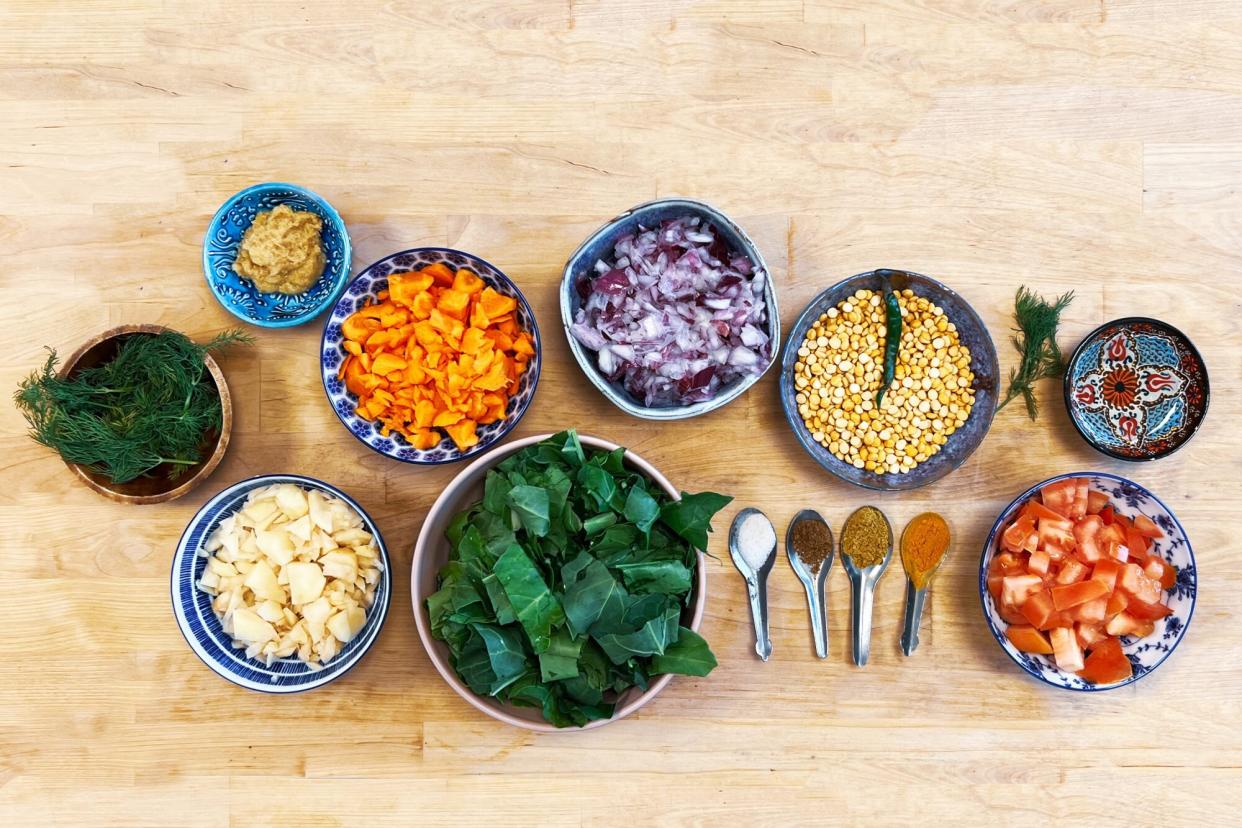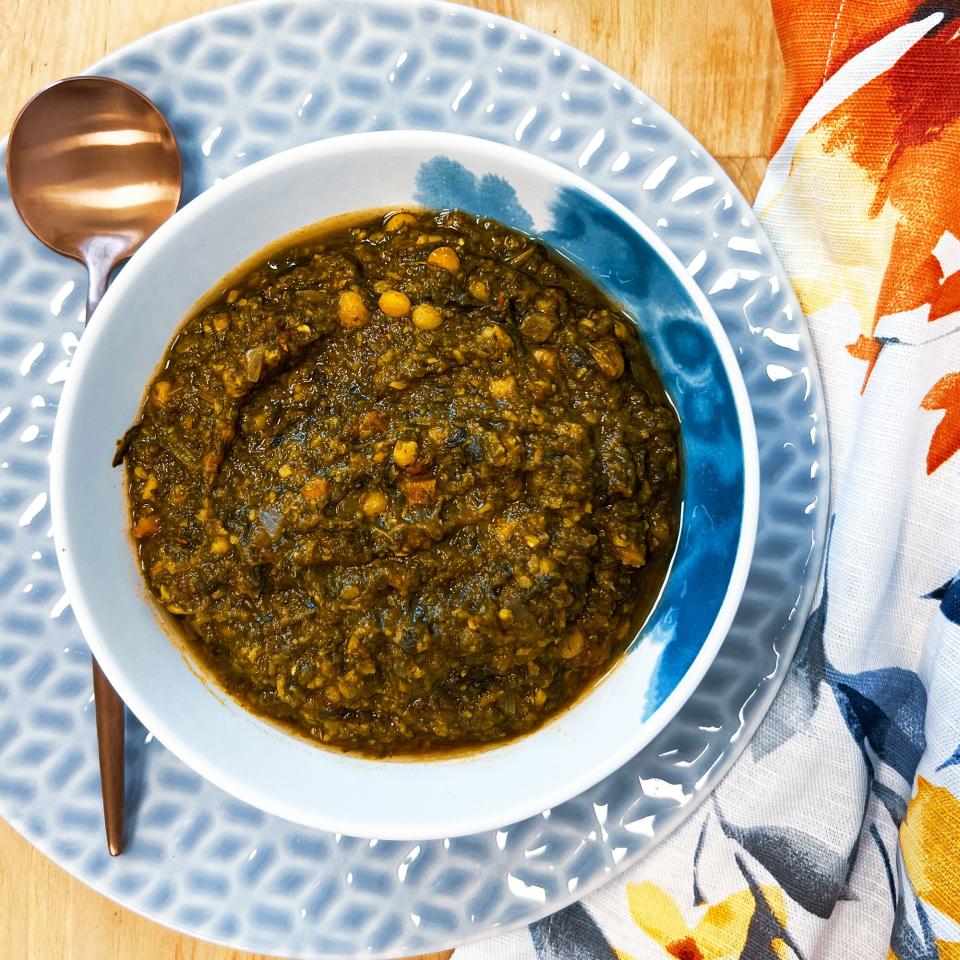I Didn't Know How to Tell My Father I Loved Him. So I Learnt to Make Sai Bhaji

Natasha Amar
Ask any Indian Sindhi and they'll tell you that sai bhaji (which translates to "green vegetable" in the Sindhi language), a hearty spinach and legume dish that's usually served with rice, is straight-up nostalgia and comfort in a bowl. They might even admit what nearly every Sindhi truly believes in their heart: that the best sai bhaji in the world is the one their mother makes.
I believed this too. Then one day, my mother, who was great at everything from financial planning to rustling up three-course meals from leftovers, passed away without warning, taking her sai bhaji recipe along to the heavens.
An 18-year-old college student at the time, I'd never learned how to cook. Unlike my older sister, who was happily married by then, I simply wasn't interested in it. My mother and I had spent the last five years living in Mumbai, away from my father, whose business in Dubai had split our family geographically. Save for a minute's conversation on the phone every weekend and general niceties during the week or two when he visited annually, my father and I hadn't really talked in years. Our conversations barely went beyond him asking about how I was doing academically or me asking about his business. We never discussed hobbies, dreams or boyfriends—you know, the kind of stuff that keeps teenagers so engrossed in their lives.
At that point in our lives, we didn't know each other well.
When my mom died, of course, I didn't know how to tell this newly widowed man that I loved him, just as he didn't know how to tell his 18-year-old daughter, now on the cusp of adulthood, that he loved her.
So after her last rites, when all the guests had left and it was just the two of us and a heavy, awkward silence in the house, I found myself resorting to my mother's love language to show him I cared: I set about cooking him a meal. Instinctively, I decided it had to be sai bhaji.
Belonging to a regional cuisine that's largely overlooked by Indian restaurants around the world, sai bhaji is the kind of dish you're only likely to find in a Sindhi home, especially on weekends or special occasions, when indulging in multiple helpings and post-lunch naps is encouraged. My mom cooked a huge portion of sai bhaji for our family of four, knowing that my sister and I would rummage around in the fridge for it the next day.
As a child, I'd watched her cook sai bhaji often, my legs dangling from the countertop where I sat chatting about my day at school while she chopped vegetables. Sometimes she'd assign me easy tasks like rinsing the spinach. "Make sure you wash it again and again to remove all the dirt," she'd say.
The main ingredients of sai bhaji remain the same—spinach, dill leaves, chana dal (split chickpeas), onions, tomatoes and spices—but rarely will two family recipes for sai bhaji ever taste alike. The secret, very often, lies in the vakhar, a term that refers to the mix of vegetables added to the dish—usually some combination of potatoes, carrots, eggplant, okra and haricots verts.
A lot can also change according to the ratio of spices and condiments; some people like their sai bhaji with a strong garlicky flavor while others might cut back on the spices to highlight the taste of the spinach. Then there are the differences in preferred consistency, depending on whether you intend to serve it with rice, with roti or on its own.
That evening, I needed the cooking to be quick and simple. I had never cooked an Indian main dish before. I drew on my memories and followed the steps in what seemed like the most logical order. I alternated between tasting and adding more spices and hoped that I'd end up with at least a half-decent meal. Since I was convinced she was still around watching over us, it felt like if I failed, I'd disappoint her.
When we sat down to eat, unexpectedly, the bowl of steaming sai bhaji brought a faint smile to my father's face, accompanied by a surprised "Arrey!" The sai bhaji looked quite good, the consistency just right. He said, "I didn't know you cooked," to which I replied, "I don't. But I thought I'd try to cook us a meal today."
What I was really saying is, "I love you, Papa. We'll get through this."

Natasha Amar
Get the recipe: Sai Bhaji (Chana Dal with Spinach & Vegetables)

